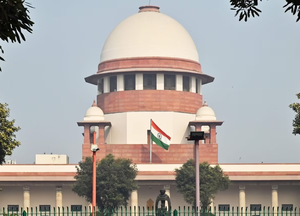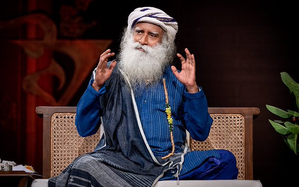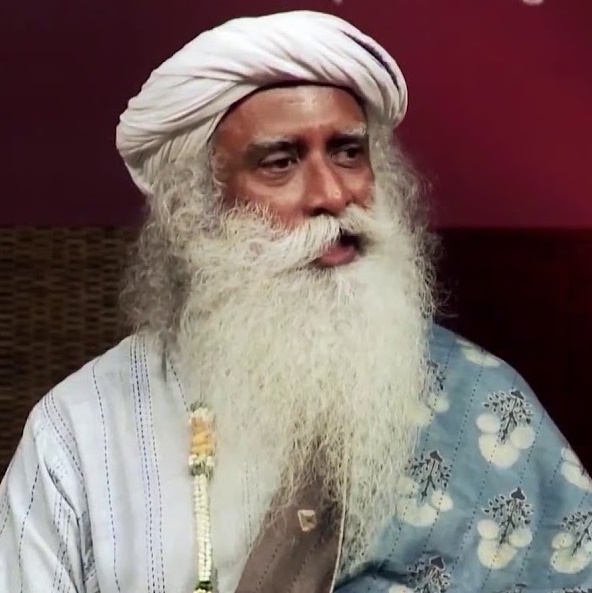New Delhi : The Supreme Court, in a pathbreaking judgement on Thursday, put an end to caste-based discrimination in prisons, calling it unconstitutional, and directed the Centre to make changes in jail manuals that perpetuate such practices.
The top court directed that the “caste” column and any references to caste in undertrial and/or convicts’ prisoners’ registers inside the prisons shall be deleted.
A bench led by Chief Justice DY Chandrachud and also comprising justices JB Pardiwala and Manoj Misra said that the manual, which discriminates against prison by assigning cleaning and sweeping tasks to lower castes and cooking to higher castes, is in violation of Article 15.
The Supreme Court said such practices lead to unfair division of labour in the prisons and type of labour assignment based on caste, etc cannot be permitted.
Henceforth, the top court directed the Union government to make necessary changes, as highlighted in its judgement, to address caste-based discrimination in the Model Prison Manual 2016 and the Model Prisons and Correctional Services Act 2023 within a period of three months.
“We need an institutional approach where people from marginalised communities could share their pain and anguish about their future collectively. We need to reflect and do away with institutional practices that discriminate against citizens from marginalised communities or treat them without empathy. We need to identify systemic discrimination in all spaces by observing patterns of exclusion. After all, the “bounds of caste are made of steel”–“Sometimes invisible but almost always inextricable.” But not so strong that they cannot be broken with the power of the Constitution,” the top court said.
The court also directed the Union government to circulate a copy of this judgement to the Chief Secretaries of all States and Union territories within a period of three weeks from the date of delivery of this judgement.
The top court also issued many other directions. One among them was declaring references to habitual offenders in manuals as unconstitutional.
“References to “habitual offenders” in the prison manuals/Model Prison Manual shall be in accordance with the definition provided in the habitual offender legislation enacted by the respective state legislatures, subject to any constitutional challenge against such legislation in the future. All other references or definitions of “habitual offenders” in the impugned prison manuals/rules are declared unconstitutional. In case, there is no habitual offender legislation in the The state, the union, and the state governments are directed to make necessary changes in the manuals/rules in line with this judgement within a period of three months,” the top court said.
“The impugned provisions are declared unconstitutional for being violative of Articles 14, 15, 17, 21, and 23 of the Constitution. All States and Union Territories are directed to revise their prison manuals and rules in accordance with this judgement within a period of three months,” the order copy said.
The Court also took suo motu cognisance of the discrimination inside prisons on any ground such as caste, gender, or disability, and shall list the case from now onwards as In Re: Discrimination Inside Prisons in India. The top court directed the Registry to list the case after a period of three months before an appropriate Bench. The top court asked all states and the Union government to file a compliance report on this judgement.
The DLSAs and the Board of Visitors formed under the Model Prison Manual 2016 shall jointly conduct regular inspections to identify whether caste-based discrimination or similar discriminatory practices exist, the top court said.
The court asked the DLSAs and the Board of Visitors to submit a joint report of their inspection to the SLSAs, which shall compile a common report and forward it to NALSA. The top court asked NALSA to file a joint status report before the top court.
“What does the future hold for India? Dr Ambedkar had expressed this concern in his last address to the Constituent Assembly. The concern holds true even today. More than 75 years since independence, we have not been able to eradicate the evil of caste discrimination. We need to have a national vision for justice and equality,” the order copy read.
The top court also directed the police to follow the guidelines to ensure that members of denotified tribes are not subjected to arbitrary arrest.
Moreover, the top court also appreciated the petitioner and lawyer for assisting and highlighting the instance of institutional systemic discrimination.
The petition was filed by a journalist, Sukanya Shantha, who had told the bench that there are cases where Dalits are in separate prisons and some other caste is in a different area.
The plea filed through advocate Prasanna S sought to challenge the various discriminatory provisions of the Prison Manuals and Rules for being ultra vires to Article 14, 15, 17, and 23 of the Constitution of India. It sought issuance of specific guidelines or directions in respect of caste – based division of labour in the various State prison manuals.
It sought direction to bring the prison manuals and rules administered by them to repeal all provisions that either segregate or discriminate prisoners or the work assigned to them on the basis of caste, belonging to denotified tribes or them being ‘habitual offenders’ and bring such manuals and Rules in conformity with the provisions of the Constitution of India.
“Direct all the Respondents to undertake strong action to prevent the persistence of forced caste-based labour and segregation in prisons,” the plea sought.
It further sought direction for states to take steps to ensure proactive disclosure of prison manuals, through greater digitisation of the state prison manual on the website of respective home departments and to undertake regular printing of prison manuals to be readily available.






